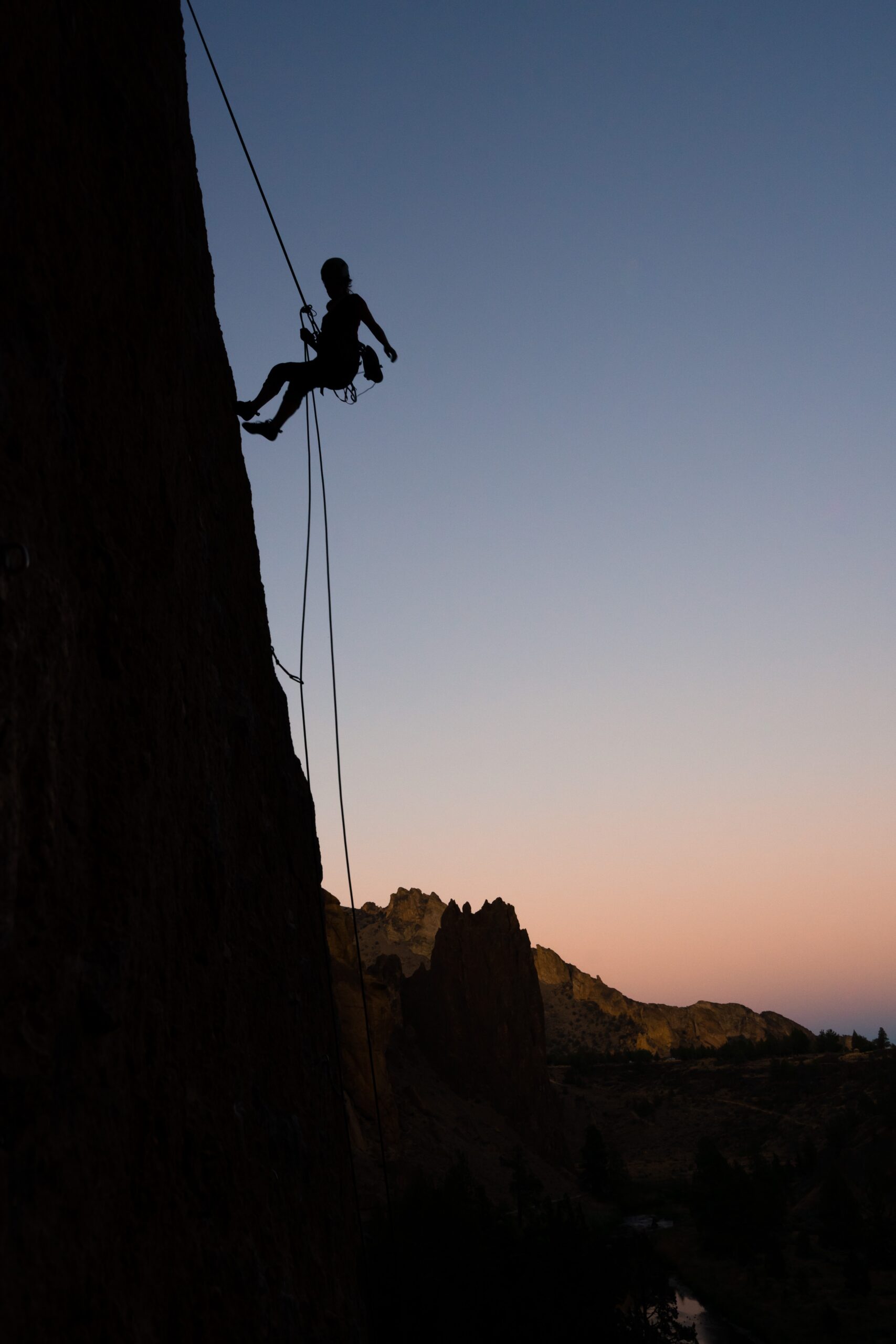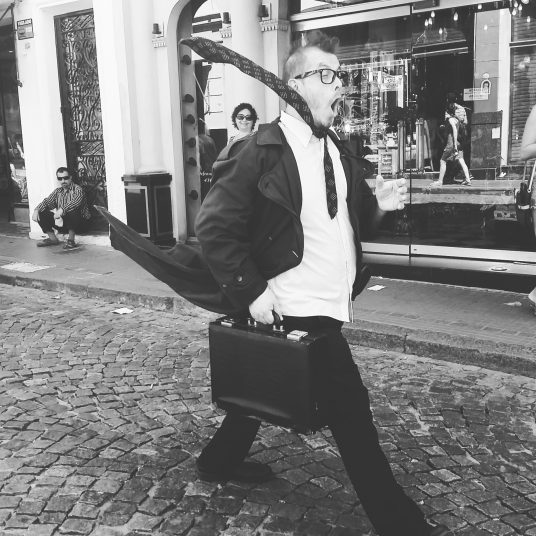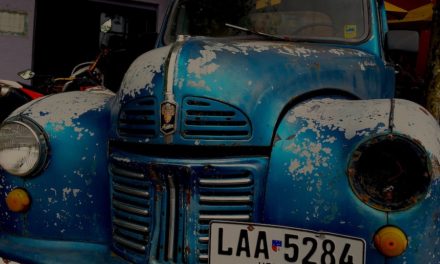From Drags to Crags

“It’s funny. When I tell people stories about our antics when we were younger and so on, people often say to me, ‘I can’t imagine you doing that. You seem so sensible.’”
It’s hard to picture Conall Ó Fiannachta snorting lines and shattering pub windows with his forehead. Nothing about the rock climber’s demeanor registers drug addict. Boy Scout, however, easily comes to mind.
Yet for over a decade, Conall consumed anything that numbed reality.


He says, “When I found marijuana and alcohol at the young age, I thought I’d found the secret…It was like winning the lotto…it was OK to be me.” Personal acceptance took on many forms: gas, petrol, paint thinner. “Really, whatever you could get your hands on in the shed, type thing.”

Always chasing that first buzz, Conall’s addictive personality mainlined curiosity and sent him on a full-scale expedition. He dropped LSD at 13. Amphetamines at 14. Ecstasy at 15. He also remembers doing speed in his bedroom alone at this age. “It’s clear now that the signs were there,” he says. Work replaced school to fund his habit. By 16, he was snorting cocaine and consuming whatever uppers and downers were within reach. “You never really knew what you were taking. Just someone had them, and you took them.” The last couple of years it wasn’t uncommon for him to spend €200 to €300 nightly on alcohol and cocaine.
The only drug not on his list by 17? Heroine. A blessing he considers often. “I do count myself very lucky that I was never offered it, because I probably didn’t have the ability to say no.”
Conall chose a different, more violent route. “I was so angry,” he says. He’d punch walls and doors and start fights during which he was too hammered to defend himself. Once, he followed a night of binge drinking by simultaneously swallowing eight XTC pills. He managed 200 yards before collapsing, only to be found hours later by a friend, who wanted to rush Conall to the hospital. Conall just wanted to sleep it off.
Despite getting kicked out of his house, crashing where he could, and a few near-death-experiences—he spent his 21st birthday getting his stomach pumped—Conall never sought change. “Even though I always had this little fire in me for a better life, I didn’t know how to get it.”
Not until he was 24.
“We’d been on what we call a bender…Two, three, four days. I’m not sure how long…I was probably on it much longer than that.” The average daily bender intake comprised a 70cl bottle of Vodka, half dozen or more beers or ciders to wash it down, and 3 or 4 grams of cocaine or whatever other drugs were around at the time. Just for Conall.
When his friends went to bed, Conall resolved to finish the remaining four grams of blow. “The drugs finally stopped working, and all these emotions that had built up just came flooding out. And I just broke down. I just broke down and cried, I never felt more alone. And I was like, there must be more to life.”
Conall says he always blamed other people, his parents, teachers, school, the world for everything. “It was finally then that I was able to look at myself and realize, ‘You need to change.’” Though, he believes one of the hardest things to do is to not only admit one needs help, but accept it. “You’re at a huge vulnerability,” he says.

On Belay
At that point, his suffering far outweighed his pride. Conall took his mom’s advice and sought treatment.
He remembers driving up to The Rutland Centre in south Dublin, thinking, how did this happen? My life is over.
”Little did I know, my life was only beginning, really.”
“When I went in, I was broken. Emotionally, spiritually, mentally, physically bankrupt. I was very lost.” Just making the choice to be there felt lighter. “It was kinda like, in a sense, the fight was over,” Conall says. “I had battled to control my drug use for so long that when I walked in there, it was almost like a relief, in a sense.”
After a two-day adjustment period, Conall began an intensive five-week roller coaster based on the Hazelden method of treatment. One component being forced group-therapy participation. He found the experience terrifying, but credits honesty as his static lifeline. “You take away the drugs, and you’re very raw…Strangers will tell you things about yourself that friends or people you know will not.”
A dramatic change took place in him during that short period. He realized just how his behavior affected those around him. “To come to that realization was an eye opener. Suddenly it was more than just me.”
To his surprise, the sessions filled a long-time vacancy in his life and played a significant role in his recovery. “If you’re a deep person, and you don’t get to talk, it’s suffocating.” The safe space that fostered unfiltered communication became so comfortable that when his release date rounded, he didn’t want to leave. “It was like someone had lit a match inside me,” he says. “There was a bit of fight again.”

The Ascent
Conall continued weekly Narcotics Anonymous meetings and therapy sessions after treatment and found work as a powder-coating painter. For the first time, he fulfilled a dream of joining ranks with the responsible and disciplined. “I looked up to the people that were able to do that, and suddenly I was doing that. You build confidence and strength through that,” he says.
However, stepping back into the real world tripped him up. All of the things he found so difficult in the first place—the people, behaviors, circumstances—waited. Despite his spirit having “awoken from consciousness,” nothing else had changed. He says, “It took me a long time to realize it wouldn’t. I can’t change anyone except myself.”
“Even though I had changed, I went back to my old behaviors. It’s all I knew.”
Three weeks out, believing he’d resist temptation, Conall helped a friend cut cocaine. His situation spiraled and months out of treatment, he found a beer in hand, leading to a full-blown relapse. His hard-won confidence and self-esteem plummeted within seconds. Conall thought he could drink again, responsibly. He knows now that’s not possible.
On-Sight
That’s when he received an invitation to go surfing in Sligo from a life-long friend, who’d broken away from the scene years before. Conall went for one reason. “I was sick and tired of being sick and tired.”
Average January air and water temps of 5 and 7 degrees Celsius, respectively, for the Northwest Coast require a 5/4mm, quality wetsuit with gloves, boots, and a hood. Conall went with a junky, ill-fitting wetsuit. No hood. No gloves. No booties.
He shuffled out of the water two hours later, completely numb, but never feeling more alive. “It was like finding that first drug, except 100 times better,” he says. “It was like ‘Oh my God, what have I been missing?’”

Not only did Conall feel relieved to have an outlet to channel his excessive energy, but being reconnected to the outdoors gave him hope. His inner child felt excited again. “It opened up another world.”
Within weeks, he’d completely geared up and worked his job schedule around the surf forecast. Conall fully admits his addictive personality and recognizes his transference from drugs to the outdoors. But he doesn’t think there’s any comparison between the two highs.
“When you take a drug, that drug plays around with your brain and natural processes and chemicals. But it‘s quite out of your control. You’re taking something. Whereas you find a difficult [rock climbing] route, and you’re faced head on with fear, that can grip you. When you push past that, you can’t beat that feeling. That rush of adrenaline. In that moment is when I feel most alive. And it’s better than any drug I’ve ever taken, and it’s better than the first time I took any drug, because it’s deep within me…It’s not from the outside. It’s from the inward out.”
Take
Naturally, being someone all-in, Conall signed up for the FETAC Level 5 Certificate in Outdoor Recreation at St. Kevins College of Further Education in Crumlin, Dublin. He spent the two-year program immersed in the outdoors. Mondays, rock climbing. Tuesdays snorkeling and swimming. Wednesdays, he went sailing, wind surfing, and power boating. He spent Thursdays kayaking, and Fridays hillwalking and learning mountain skills. Conall says, “It was like you couldn’t get up quick enough in the morning.”
He followed that with the FETAC Advanced Certificate in Sports Development Level 6.
After qualifying as an instructor, he spent four years teaching at Gaeltacht Irish Adventure College in County Mayo. Then he achieved first class honors at IT Sligo pursuing a Bachelor of Business Degree in Recreation and Leisure.
Since then, Conall’s opened Carraig Climbing, a rock climbing and adventure provider based in County Sligo. Not originally a local, he chose the area for its wild environment primed for most outdoor pursuits. “Rock climbing, particularly in Sligo, and along the west coast is pretty epic.”

I love seeing people push past their fears and accomplish something they though they couldn’t. I love to be able to have some influence on that.”
Safe
Now, Conall spends most of his time outdoors teaching others to navigate rock faces. While he has aspirations to add mountaineering and scrambling to his services, as well as open an indoor climbing gym, he’s happy where he’s at for the moment.
“I love seeing people push past their fears and accomplish something they thought they couldn’t. I love to be able to have some influence on that.” Seeing that difference in people gives him a buzz. He loves the idea of being part of the catalyst that inspires someone to pursue climbing.
One individual, in particular, stands out. Conall and a client had just finished a classic line at Scalp na gCapall in Sligo, which opened up to views of Culleenamore, Knocknarea Mountain, Ballysodare Bay, the Wild Atlantic, and the Benbulben range. With tears in his eyes, but beaming, the man thanked Conall repeatedly for providing the experience.
“That’s priceless,” he says. “It’s those little moments that you remember.”
It’s stories like that, in environments like Happy Valli, Sligo, Wicklow Mountains, and Donegal that have buttressed Conall’s sobriety since September 7, 2008. “Since then there have been a lot of firsts: my first driving license, passport, car, foreign holiday, and so much more.” Some of the experiences he treasures thus far in his new life are hiking in the Cascades, snowboarding in the Alps, kayaking in Slovenia, and surfing in Hawaii.
Above everything, he considers his greatest gift acceptance. “I accept and like myself for who I am today without any drugs. It’s not difficult to stay sober; it’s a way of life.”


